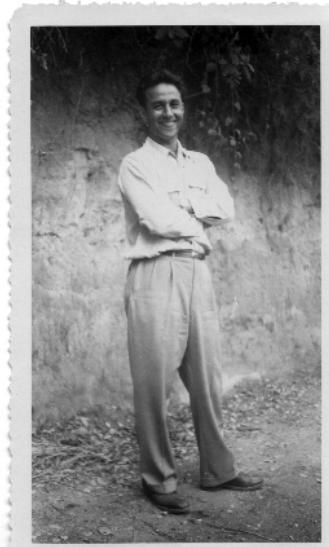| Home |
| Life Story |
| Peace Movement |
| U. S. Supreme Court |
| Eviction |
| Book |
| Pictures |
| Tamalpais Health Ctr |
Donation of Proceeds

The tenants' committee that won a long anti-discrimination campaign against the owners of Parkmerced two months ago announced yesterday they were giving $20,000 of the settlement to five civil rights organizations.
In making the settlement, the Parkmerced Corporation agreed to undertake a program toward greater integration of the large housing complex.
Paul Trafficante, chairman of Parkmerced Residents Committed to Open Occupancy, … said yesterday's contributions amounted to all but about $3,500 from the settlement that was left after legal expenses and other costs were paid.
The organization gave $10,000 to Operation Sentinel, which handles Bay Area complaints about discrimination. It gave $4,000 to the Michael Egger Fund, which reimburses lawyers for expenses in bringing civil rights suits, and $2,000 a piece to the Council for Civic Unity, National Neighbors and the NAACP Legal Defense and Educational Fund.
Trafficante said any sums left from the remaining $3,500, which is being
held to cover unexpected expenses, will be donated to civil rights groups
at a later time.
Paul J. Trafficante et al., Petitioners,
v
METROPOLITAN LIFE INSURANCE COMPANY et.al.
409 US 205, 34 L Ed 2d 415, 93 S Ct 364
[No. 71-708]
Argued November 7, 1972. Decided December 7, 1972
SUMMARY
A black and a white tenant of a San Francisco apartment complex sued the apartment owner-operator in the United States District Court for the Northern District of California, alleging that the owner-operator was engaged in discriminatory housing practices, in violation of the Civil Rights Act of 1968, by maintaining a "white ghetto" and depriving the plaintiffs of their right to live in a racially integrated community. The District Court dismissed the complaint on the ground that the tenants lacked standing to sue (322 F Supp 352), and the United States Court of Appeals for the Ninth Circuit affirmed on the ground that only those who are the objects of discriminatory housing practices have standing to sue to challenge them (446 F2d 1158).
On certiorari, the United States Supreme Court reversed. In an opinion by DOUGLAS, J., expressing the unanimous view of the court, it was held that all in the same housing unit who are injured by discriminatory housing practices have standing to sue under [810 of the Civil Rights Act to secure statutory remedies for the discriminatory practices.
White, J., joined by BLACKMUN & POWELL, JJ., joined the court's opinion and judgment but filed a concurring opinion emphasizing the statutory basis of the tenants' standing to sue.
1. Under 810 of the Civil Rights Act of 1968, permitting suit by "any person who claims to have been injured by a discriminatory housing practice or who believes that he will be irrevocably injured by a discriminatory housing practice that is about to occur," standing to sue is as broad as is permitted by Art lll of the Constitution, insofar as concerns tenants of the same housing unit that is charged with discrimination; hence, the statute gives standing to sue to all in the same housing unit who are injured by racial discrimination in the management of those facilities under the auspices of the Department of Housing and Urban Development.